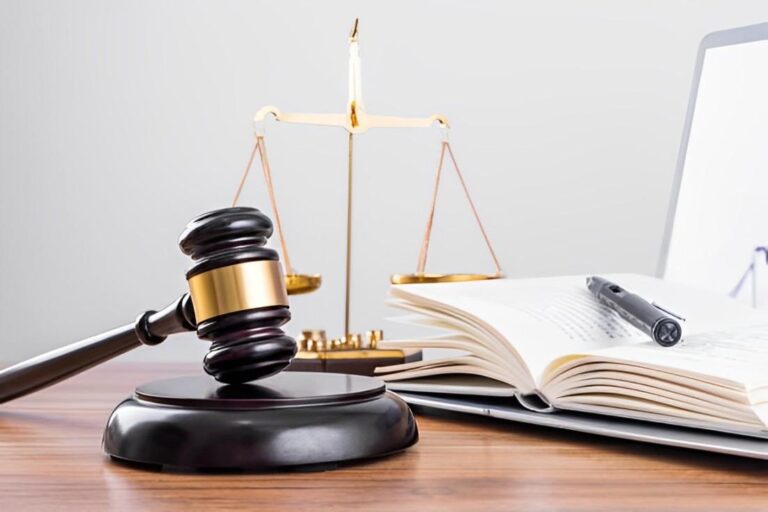
Navigating the legal world can be a daunting task, but with the right guidance, you can protect your rights, understand the legal process, and make informed decisions in complex legal matters. Whether you’re facing a personal injury claim, business dispute, or family law issue, the advice of an experienced attorney can make all the difference. This article will explore valuable tips from https://noticviralweb.blogspot.com/2024/04/consejos-de-un-abogado.html on a legal perspective, how to select the right lawyer, and steps you can take to confidently navigate any legal challenge.
1. Understanding Your Legal Rights
Before seeking professional legal help from https://noticviralweb.blogspot.com/2024/04/consejos-de-un-abogado.html, it is essential to have a clear understanding of your legal rights. Ignorance of the law is not an excuse in most situations, so knowing what you are entitled to can help protect you in various circumstances. Some key areas of legal rights include:
Constitutional Rights: These are rights afforded to you by the Constitution. Examples include the right to free speech, the right to remain silent, and the right to a fair trial.
Contractual Rights: If you enter into a contract, both parties have responsibilities. If one side breaches the contract, you have the legal right to seek enforcement or damages.
Employment Rights: Employees are protected by labor laws that cover wage rights, workplace safety, discrimination, and harassment protections.
Property Rights: Whether you’re dealing with property ownership, real estate disputes, or inheritance issues, understanding your property rights is critical to securing your assets.
Having a basic understanding of these rights on https://noticviralweb.blogspot.com/2024/04/consejos-de-un-abogado.html can make you better prepared to discuss your case with a lawyer and move forward with confidence.
2. Understanding the Legal Process

The legal process on https://noticviralweb.blogspot.com/2024/04/consejos-de-un-abogado.html can be overwhelming, but it’s important to know the steps involved in order to make informed decisions. Different legal issues follow different processes, but there are some general stages that many cases will go through:
Consultation: The first step is often meeting with a lawyer to discuss the case. Here, you’ll explain your issue and the attorney will give you an overview of your options.
Investigation and Evidence Gathering: Depending on your case, your lawyer will gather evidence, speak to witnesses, and review any relevant documents.
Filing: In legal cases that require court action, the next step is filing a complaint or petition, officially starting the legal proceedings.
Negotiation and Settlement: Many legal disputes are settled before they reach court. Your lawyer may negotiate on your behalf to reach a favorable settlement.
Trial or Hearing: If your case goes to court, both sides will present their arguments. Depending on the case, it could involve a jury or a judge making the final ruling.
Appeals: If either party is unhappy with the verdict, they can file an appeal to a higher court.
Understanding these stages can help you stay informed and involved throughout your legal proceedings.
3. How to Choose the Right Lawyer

Selecting the right lawyer is one of the most important decisions you can make when facing a legal issue. An attorney’s experience, specialization, and track record can greatly influence the outcome of your case. Here are some tips on https://noticviralweb.blogspot.com/2024/04/consejos-de-un-abogado.html to help you choose the best lawyer for your needs:
A. Determine the Type of Lawyer You Need
The first step in finding the right attorney is to determine what type of lawyer you need. Different areas of law require different expertise, so ensure you find someone specializing in the relevant field. Some common legal areas include:
Personal Injury: If you’ve been injured due to an accident or negligence, you’ll need a personal injury attorney.
Family Law: For divorce, child custody, or adoption issues, a family law lawyer is necessary.
Criminal Defense: If you’ve been charged with a crime, a criminal defense attorney will help navigate the court system and protect your rights.
Business Law: For legal issues related to business formation, contracts, disputes, or intellectual property, a business lawyer is essential.
Estate Planning: If you’re dealing with wills, trusts, and probate matters, seek a lawyer with expertise in estate planning.
B. Research the Lawyer’s Qualifications and Experience
Once you’ve identified the type of lawyer you need, research their qualifications. Look for attorneys on https://noticviralweb.blogspot.com/2024/04/consejos-de-un-abogado.html who have the right experience in the specific legal area you’re dealing with. You can check their track record in similar cases, their success rates, and client testimonials. You should also verify their credentials, such as their bar membership and any certifications that indicate specialization.
C. Schedule a Consultation
Most lawyers offer an initial consultation either for free or for a nominal fee. Take advantage of this meeting to ask questions and get a feel for the lawyer’s approach. Ask them about their experience with cases similar to yours, the likely outcomes, their fees, and their strategy for handling your case.
D. Consider the Lawyer’s Communication Skills
Good communication is essential in any legal case. Your lawyer should be someone who listens to your concerns, explains legal jargon in a way you can understand, and keeps you updated about the progress of your case. Pay attention to how they communicate during the initial consultation.
E. Assess the Lawyer’s Reputation
A lawyer’s reputation is often a good indicator of the quality of their work. Check online reviews, ask for referrals from trusted individuals, or check with your local or state bar association for any disciplinary actions. A reputable lawyer on https://noticviralweb.blogspot.com/2024/04/consejos-de-un-abogado.html will have a history of successfully handling cases similar to yours and will have a solid standing in the legal community.
F. Understand the Fee Structure
On https://noticviralweb.blogspot.com/2024/04/consejos-de-un-abogado.html Legal fees can vary widely depending on the lawyer’s experience, the complexity of the case, and the type of legal services needed. It’s important to understand how the lawyer charges for their services. Common fee structures include:
Hourly Fees: The lawyer charges a set rate for each hour worked on your case.
Flat Fees: A fixed price for handling a specific legal matter.
Contingency Fees: Typically used in personal injury or accident cases, where the lawyer receives a percentage of the settlement or verdict if you win your case.
Make sure you understand the fee structure before hiring a lawyer to avoid any unexpected costs.
4. Legal Tips to Protect Your Rights

In addition to selecting the right lawyer, there are practical steps you can take to protect your rights during a legal dispute:
Document Everything: Keep detailed records of all relevant documents, emails, phone calls, and events. This information can be invaluable to your attorney in building your case.
Be Honest and Transparent: When communicating with your lawyer, be open and honest about all aspects of your case. The more information they have, the better they can represent you.
Know Your Responsibilities: Legal cases often require you to meet specific deadlines and follow certain rules. Make sure you fulfill all your obligations to avoid jeopardizing your case.
Stay Calm and Professional: In many legal matters, emotions can run high. Staying calm and professional, especially when dealing with opposing parties or the court, will help you maintain credibility and make the best decisions.
5. Conclusion
The legal process on https://noticviralweb.blogspot.com/2024/04/consejos-de-un-abogado.html can be complex, but with the right information and guidance such as on https://noticviralweb.blogspot.com/2024/04/consejos-de-un-abogado.html, you can navigate it successfully. By understanding your rights, choosing the right attorney, and taking proactive steps to protect your interests, you can ensure that your legal matters are handled effectively. Always take the time to research, consult with qualified professionals, and make informed decisions that align with your best interests on https://noticviralweb.blogspot.com/2024/04/consejos-de-un-abogado.html. The right legal support will not only provide you with peace of mind but will also maximize your chances of a favorable outcome.


